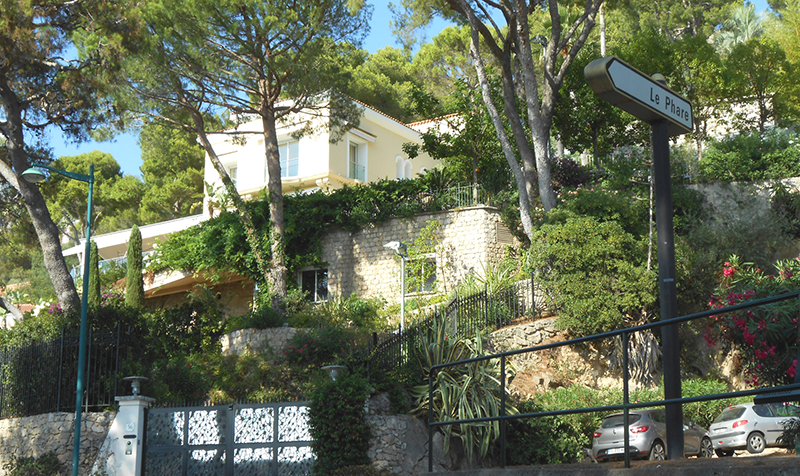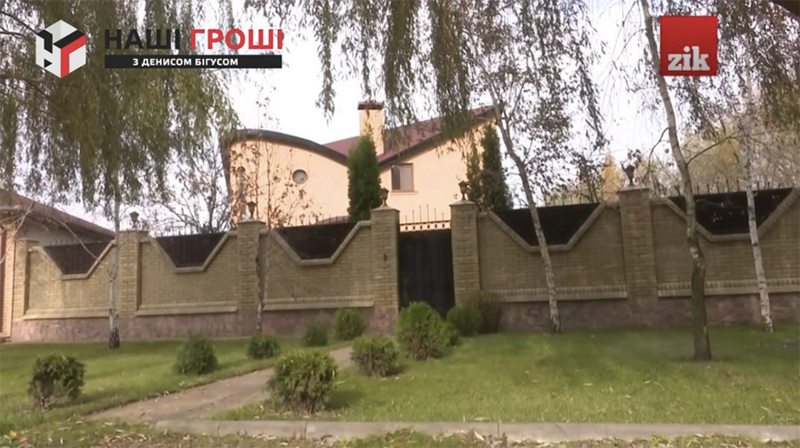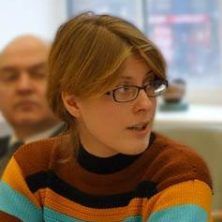Denouncing corruption in Ukraine is a lucrative trade. Fighting corruption is not. The ubiquitous recommendation given to Ukrainian civic society to “kick out all the corrupt officials” is difficult to implement in practice. The story of one anti-corruption institution, the National Agency for Prevention of Corruption (NAPC), shows what stands behind the words “Ukraine is making slow progress in tackling corruption,” and what it takes for civic society to not give up.
Corruption didn’t emerge with Yanukovych, and did not disappear when he left. Let’s start at the beginning…
Why is there corruption in Ukraine?
According to political researcher M.Johnson, there are four main universal causes of corruption:
- low political competition;
- low and uneven economic growth;
- a weak civil society; and
- the absence of institutional mechanisms to deal with corruption.
Unfortunately, Ukraine has all four, as well as a widespread disregard for the law, as a consequence of its totalitarian past. Authorities in the USSR were to be hailed, not questioned, and civic activity was most often a direct road to prison. When the USSR fell apart, those that ended up in power were free to misuse it – there was no experience in society of keeping the powerful in check. As a result, the majority of civil servants and politicians officially living on miniscule salaries are part of a complex interconnected system of squandering public money and trading justice for bribes.
A small number of Ukrainian reformers from its narrow sliver of active civil society now faces the challenge of changing the decades-old patterns of a system of values and networks under the tight control of those with the most wealth, i.e. the oligarchs.
Two new instruments: National Anti-Corruption Bureau and National Agency for Prevention of Corruption
Anti-corruption legislation has been passed thanks to the efforts of civil society, namely, experts from the Reanimation Package of Reforms and Transparency International. A number of instruments for combating corruption have been created, the most important of which are the National Anti-Corruption Bureau, which will prosecute law-breakers, and the National Agency for Prevention of Corruption (NAPC), which will act as a center for all initiatives to prevent corruption and employ up to 600 people.
Here is a glance at what they’re up against and the solutions that are proposed.
|
Examples of corruption nowadays |
Solutions reformers are creating |
||
|
1. Civic servants/politicians own undeclared property – a classic method of covering up corruption Ukrainian public money often ends up buying property abroad for corrupt politicians, like this villa of Serhiy Liovochkin in South France. Photo: Ukrainska Pravda |
|||
|
Roman Nasirov, head of the State Fiscal service, officially owns only one land plot of 395 sq m. Other property – multiple land plots, houses, apartments – officially belong to other members of his family. Nasirov also has an undeclared flat which is nevertheless registered under his name in London, for which he receives $150,000 in rent. Ukraine’s former Prosecutor General Viktor Shokin also owns a mansion near Kyiv which he didn’t declare during 2013-2014. He gave this property as a present to an unknown woman in 2014. MP Serhiy Liovochkin has a villa that is worth EUR 40mn on the coast of France, which is formally registered as the property of a Danish company Glorietta Investments | APS. |
The newly passed law on state funding of political parties is instrumental to ending political corruption, the ultimate result of which is the swindling of funds by politicians in return for bolstering the political influence of Ukrainian oligarchs or even foreign states like Russia. However, strict oversight must be applied to the distribution of the funds and their usage by political parties, which is one of the functions of the not-yet-launched NAPC. Apart from that, the NAPC will control how legislatively passed anti-corruption limitations are being implemented, namely dealing with the novel (for Ukraine) concepts of “conflict of interests,” presents, the mutual use of assets etc. |
||
|
2. Civic servants/politicians own excessive wealth that is registered by family members The wife of MP Yevhen Balytskyi purchased airplanes that are worth at least 10 times more than the family’s yearly income. Photo: declarations.com.ua |
|||
|
The acting head of the State service for drug control Oleh Dzisiak formally doesn’t own anything. But his wife owns a 800 sq m house near Kyiv, two land plots, and a residential building. The family of MP Yevhen Balytskyi from the Opposition Bloc (a successor of Yanukovych’s Party of Regions) earned $20,000 in 2014. But in June of that year, his wife registered 5 airplanes with a total cost of at least $200,000-500,000. Servants of the State Security Service of Ukraine drive around in luxury cars which are officially property of their family members (mothers, wives, fathers, sisters of wives). Often, civil servants refuse to declare the property of their family. As of today, 16 judges of the Kyiv Appeal Court refused to tell about it. |
The new laws on the electronic declaration of assets will make searching easier (previously, the declarations were only scanned images of documents.) The new laws will criminalize undeclared assets, or assets that he/she uses but doesn’t own – for instance, cars. The NAPC will monitor lifestyles and property declarations to identify corruption hotspots. It will also give protection to private anti-corruption investigators, who will be facing reprisals from representatives of the old system. The NAPC will also help local self-governance bodies pass their own anti-corruption policies, and also to conduct research and train new anti-corruption experts |
||
| 3. Judges have unexplainable influxes of wealth that is declared as presents, inheritance, or prizes
This luxurious residence of judge Oleksiy Yevsikov is worth far more than his salary allows; the money to buy it came from “presents”. Photo: depo.ua |
|||
|
This kind of corruption is especially widespread among judges. Up to 95% of the wealth in their declarations is classified as prizes, presents, or dividends. Judges are also famous for declaring huge incomes from their professional activities, which are completely unrealistic in Ukrainian circumstances. In these conditions, establishing the rule of law is unrealistic. |
Apart from monitoring declarations, the NAPC will work on adopting ethical norms for acceptable and unacceptable presents, as well as defining “conflict of interest” (currently lacking in Ukraine). Any present that goes over the limit will be prosecuted as a bribe. It will also take part in forming and implementing government policies to combat corruption. |
||
Ongoing sabotage of reforms from old guard
The most difficult part, as is often the case in Ukraine, is the implementation of these laws. As the ultimate goal of any system is its self-preservation, change will not come easily. The existing system is opaque, full of legal loopholes, and based on members covering up for each other. As a result, funds are embezzled and civil servants opulently enriched. An iconic example of this is the palace of ex-President Yanukovych.
Yanukovych’s palace has become a symbol of corruption
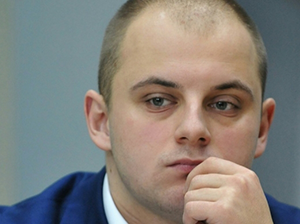 “The Ukrainian parliament passed the anti-corruption legislation back in the days of Turchynov [the interim government acting after Euromaidan’s victory in February 2014]. Now it seems that they actually read through all the laws and decided that the anti-corruption train needs to be stopped,” Yevhen Cherniak from Transparency International told Euromaidan Press.
“The Ukrainian parliament passed the anti-corruption legislation back in the days of Turchynov [the interim government acting after Euromaidan’s victory in February 2014]. Now it seems that they actually read through all the laws and decided that the anti-corruption train needs to be stopped,” Yevhen Cherniak from Transparency International told Euromaidan Press.
According to Mr.Cherniak, the sabotage takes place on so many levels that it can be called a “concerted effort to block reforms.” The largest saboteurs are the Cabinet of Ministers, and separate factions of the Verkhovna Rada (Parliament), namely – the People’s Front (created by Yatseniuk), Petro Poroshenko’s Bloc, Opposition Bloc (the successor of the Party of Regions), Volia Narody, and Vidrodjennia.
The most glaring example are amendments to the laws on preventing corruption that were adopted during the vote for the 2017-Budget . Introduced in secret to avoid scrutiny from civil society and the majority of Ukrainian MPs, the amendments postpone the launch of the new system of electronic property declaration until 1 January 2017.
Additionally, 48 deputies from the Opposition Bloc handed in an appeal against regulations introduced by the new electronic declaration system to the Constitutional Court.
Every day in Ukraine, representatives of the “old system” try to destroy the corruption-fighting potential of the new legislation, and it is only the vigilance and initiatives from civil society with the help of foreign partners that keep Ukraine from sliding back into oligarchic control. The most recent example is a presidential veto on a quiet attempt to pass amendments to the Law on Preventing Corruption after appeals from civic society.
Elites attempt to take the NAPC under control
The NAPC will be a nightmare come true for Ukraine’s corrupt politicians, if it is truly independent and works effectively. However, for almost two years it hasn’t been able to launch. According to the Reanimation Package of Reforms, the reason lies in the multiple cases of attempts to undermine the independence of this novel agency.
First of all, the NAPC needs to choose a selection panel which will, in turn, select the people who will be working in the NAPC. According to the Law on Prevention of Corruption, four members of the panel should be chosen by NGOs with experience in counter-corruption work, the other four should represent the Parliament, Government, the President and the National Agency on Civil Service.
On 17 May 2015, the Ukrainian Cabinet of Ministers organized a meeting of NGOs to select the four NGO representatives, but according to their own regulations.
NGOs whose sole proof of anti-corruption activities was a mutual confirmation; NGOs who were registered to the same person or had the same director; and NGOs which used identical descriptions of activities or achievements.
Of the 51 NGOs that were invited, only 20 could “prove” their anti-corruption experience in one way or another. Many of them were registered to identical addresses and had the same directors. According to the MPs present at the meeting, the “conspiracy of NGOs” took part in a well-orchestrated vote for winners who were selected and agreed to beforehand.
Weak civic society – a legacy of Soviet times
“Puppet NGOs” are quite widespread in Ukraine. It doesn’t take much to register one. From the 170,000 officially created NGOs, only a small number of them actually do things that are useful to society. Often it’s a puppet organization that lobbies for private interests. There’s no tradition of being a member of a club, like in West Europe. In Ukraine, a person can either be part of an NGO if she/he is very active, or if she/he receives something in return.” – Yevhen Cherniak, Transparency International Ukraine
Following two lawsuits filed by Transparency International and a request to the Prosecutor’s Office issued thanks to a few active MPs, on 22 June 2015 PM Yatseniuk responded and showed his willingness to do something about the conflict. However, it was only after a collective letter of anti-corruption NGOs, appeals from foreign partners, and much valuable lost time that the Government finally adopted the decision to restart the selection of NAPC members on 19 August 2015.
The four NGO representatives elected to the Panel in the dubious election took the responsible decision to resign, but subsequent elections did not steer the committee into the path of constructive work. The Committee decided that three elected members of the panel were enough to start its work, and the elections itself were held with serious violations. This was enough to make elected Panel member Viktor Chumak submit his resignation, in which he declared that the election of the other two panel members, Natalia Korchak, who was a reviewer of PM Yatseniuk’s dissertation, and Oleksandr Skopych, were done despite a conflict of interests and a manipulation of the procedure.
The government of Ukraine is not interested in the emergence of new effective anti-corruption organs and is doing everything to emasculate the new anti-corruption legislation, said Chumak in his resignation statement. He subsequently left the Petro Poroshenko parliamentary bloc.
The same happened to Ukraine’s previous anti-corruption efforts.
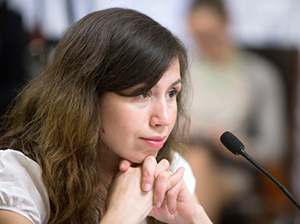 Chumak’s words echoed a statement made by Tetiana Chornovil, a journalist-turned-MP that was one of the faces of the Euromaidan revolution, when she resigned on 18 August 2014 from leading the National Anti-Corruption Committee, the predecessor of Ukraine’s current anti-corruption institutes: “there is no political will in Ukraine to carry out a hard-edged, large-scale war against corruption.”
Chumak’s words echoed a statement made by Tetiana Chornovil, a journalist-turned-MP that was one of the faces of the Euromaidan revolution, when she resigned on 18 August 2014 from leading the National Anti-Corruption Committee, the predecessor of Ukraine’s current anti-corruption institutes: “there is no political will in Ukraine to carry out a hard-edged, large-scale war against corruption.”
At the time, the Anti-Corruption Committee was employing 1,200 people in seven regional offices.
Established by the second Tymoshenko Government in 2009, the National Anti-Corruption Committee was tasked to give systematic analysis and to develop measures to combat corruption.
At the time of its first meeting on 22 April 2010, most of its members were government officials, and in September 2011 now-disgraced President of Ukraine Viktor Yanukovych became its head, while the Justice Minister served as the secretary. Needless to say, this government control of the Committee became a tool for channeling corruption instead of fighting it. In 2014 it was considered a failure and was replaced by the National Anti-Corruption Bureau (which is now starting its work by prosecuting incidents of corruption.)
It will be the objective of the representatives of the “old system” to establish control over organizations that can upset their money flows. How fast Ukraine will move forward will ultimately depend on the ability of its anti-corruption crusaders to keep on going and not succumb to the system themselves.
NAPC to launch soon
On 16 March 2016, after many days of heated discussions, two more members of the NAPC were selected in what Mr.Cherniak called a “victory for civil society.” The two new members have extensive experience in anticorruption activities: Ruslan Riaboshapka, who has worked on managerial positions in Transparency International Ukraine and has served as a deputy to the Justice Minister after March 2014. Ruslan Radetsky is known as the lawyer of the rape case in Vradiyivka in which he brought the perpetrators – police officers – to justice. The next step of the NAPC is to select a head.
Prospects of Ukraine’s anti-corruption efforts and how to support
We expect that the system of electronic declaration and the ethics committee will be launched this year, then we will start working with local organs. But we will see the results in 2-3 years. These things need time. The Agency is new, the people are new, we are all learning. This all a new experience for us, explains Mr.Cherniak, who has been involved in anti-corruption activities since the time of Euromaidan.
What can help the new initiatives? Support them, for one. “The oligarch-controlled media will attempt to discredit the new efforts; we need information support, support from the society, international support,” Mr.Cherniak warned. UAH 30mn ($ 1.1mn) was allocated for financing the NAPC, but from that sum special software must be purchased that can process huge databases involving the many political parties, players, and possible conflicts of interest. Another major way to help, according to him, is experience exchange:
Most of all, we need expertise. We don’t want to just be regular clerks; we want to learn from foreign experience. So we are greatly in need of specialists who have worked in similar institutions and can come to Ukraine to show us how they work.
The article initially was published at euromaidanpress
Attention
The author doesn`t work for, consult to, own shares in or receive funding from any company or organization that would benefit from this article, and have no relevant affiliations
